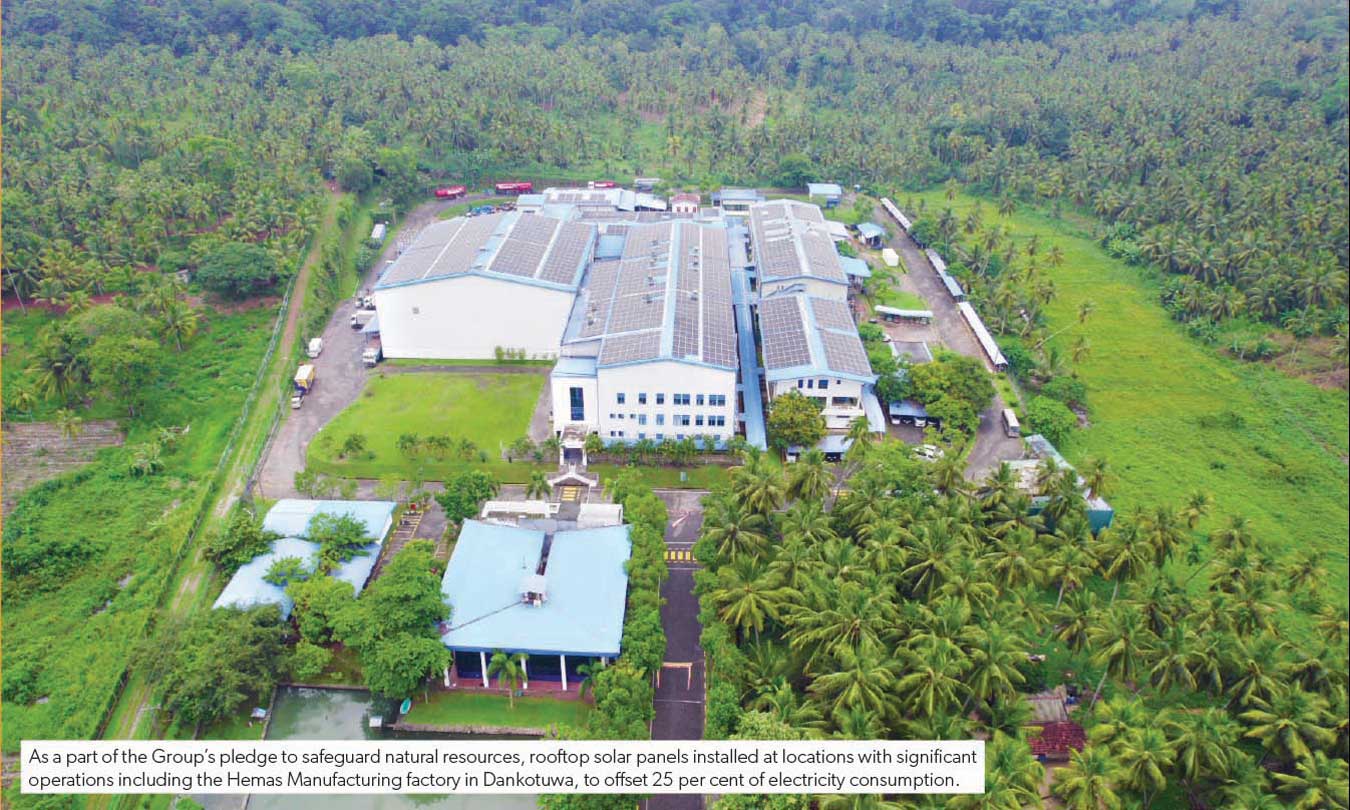HEMAS HOLDINGS
Hemas commenced operations in 1948 with the intention to help families aspire to a better tomorrow. This core belief has been the bedrock of its growth for over 70 years. Today, it is a leading public quoted company with a focussed interest in consumer brands, healthcare and mobility. Woven into the social economic fabric of Sri Lanka, Hemas has also expanded its operations to Bangladesh.
Q: In times of crisis, how important is it for businesses to uphold corporate respect?
A: Businesses should be guided by a clear purpose – serving as a guiding light through both favourable and challenging times.
This purpose helps businesses determine the industries in which the business operates to define the value it brings to consumers, as well as shape the impact on society.
When a business operates in alignment with its authentic purpose, it can build a positive reputation and earn respect from stakeholders.
In times of crisis such as the recent economic downturn, businesses have an opportunity and a responsibility to contribute to society in meaningful ways.
This includes providing relevant products or services that meet people’s needs – especially vulnerable groups who were disproportionately afected. For example, ensuring access to essential medicines, food and healthcare was crucial.
During crises, businesses that step up and contribute to society demonstrate their authenticity and genuineness. By addressing the needs of vulnerable groups and making a positive impact, they earn respect from both consumers and the wider community.
Respect arises as the byproduct of a business’ actions and intentions when it aligns with its purpose, and brings value to society.
In addition, businesses need to go beyond their basic licence to operate, and actively earn the right to do so by acting responsibly and ethically.
This means considering the long-term consequences of their actions, being accountable for their impact on the environment, supporting diversity and inclusion, and prioritising the wellbeing of their employees and communities.
By consistently demonstrating their commitment to these principles, businesses can earn the trust and respect of stakeholders.
Q: How is environmental, social and corporate governance (ESG) claiming its space in the ‘corporate respect’ equation?
A: ESG factors are becoming increasingly important in Sri Lanka’s corporate landscape.
Businesses are recognising the significance of environmental and social considerations such as carbon emissions; waste management; eco-friendly practices; employee wellbeing; diversity, equity, and inclusion; fair labour practices; and community engagement.
Corporate governance practices are gaining prominence – emphasising transparency, accountability and compliance. Efforts are being made to strengthen board structures, financial reporting and regulatory compliance. .However, there is room for improvement in the comprehensive adoption of ESG practices across industries.
Businesses need to integrate ESG considerations into strategic planning and decision-making processes. This means going beyond superficial gestures and making ESG factors an integral part of their business operations. It requires a deep commitment to sustainability, responsible business practices and positive societal impact.
Driving the comprehensive adoption of ESG practices in Sri Lanka will require a collaborative effort. Government support and the establishment of robust regulatory frameworks are crucial. Investor demand is also a significant driver as investors increasingly seek businesses that demonstrate strong ESG performances.
Q: How important are stakeholder perceptions, in your opinion – and why?
A: Stakeholder perception is crucial for organisations as it serves as a reality check and helps shape the corporate identity. It allows the organisation to compare external perceptions of their brand with their intended brand equity.
It also provides an opportunity to comprehend and shape the corporate identity, enabling corrective actions to align stakeholders’ perceptions with the desired image.
Authenticity plays a significant role in influencing consumers’ perceptions and purchasing decisions.
When an organisation is perceived as genuine and authentic in its values and actions, it can attract and retain customers, build brand loyalty and positively impact its reputation.
Authenticity also plays a vital role in employee branding, attracting talented individuals who align with the organisation’s values and mission.
Moreover, stakeholder perception – especially within the local community – is essential for an organisation to earn a ‘licence to operate.’
Q: What are the main attributes of your company’s image?
A: Hemas focuses on empowering families to aspire for a better tomorrow. We are also a company that is truly Sri Lankan, progressive and inclusive.
Hemas Holdings is a diversified corporate with a focussed interest in consumer, healthcare and mobility. It is a publicly listed company with over 4,500 employees. The company has a reputation of championing a more inclusive world, investing in diverse and passionate teams, creating meaningful offerings and cultivating trusted partnerships.
QUICK-FIRE ROUND
Three priorities for Sri Lankan corporates today
Investments in technology, automation and digital capabilities
Enhancing corporate governance through strengthening the relevant practices
Embracing sustainable practices that address environmental, social and economic challenges
Three most vital professional values for business leaders
Integrity
Accountability
Empathy and inclusive culture
Telephone: 4731731 | Email: kasturi@hemas.com | Website: www.hemas.com







